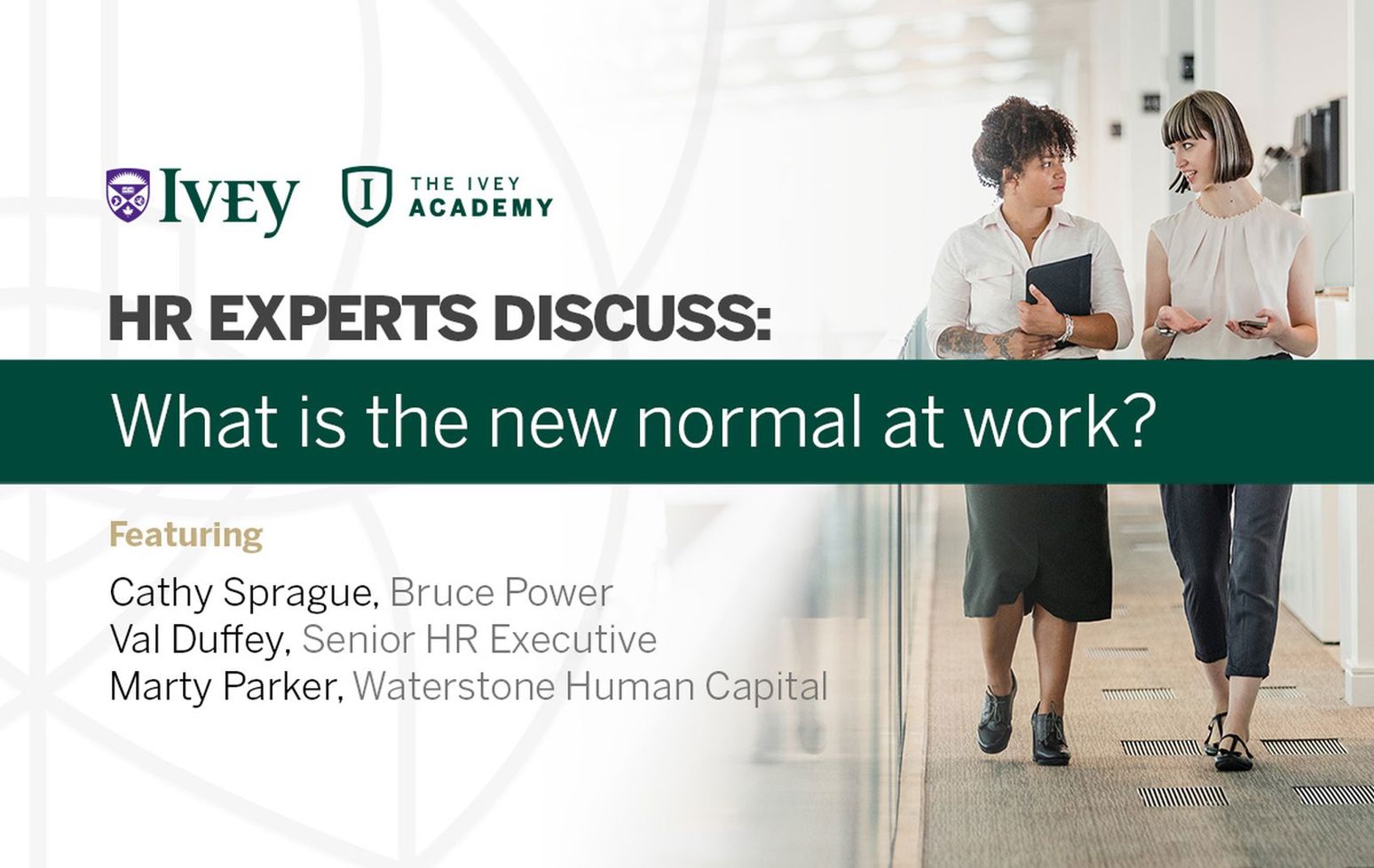The COVID-19 crisis has spurred the growth of remote online work and will continue to change both the way we work and how we think about working arrangements, experts say.
“We’ve found really interesting ways to get work done. At times it has been more productive and more expedient,” said Cathy Sprague, Executive Vice President of Human Resources at Bruce Power. “There might be a wish to go back to the way we were before, but it’s a great opportunity for us to be thinking about revolutionizing some of the ways that we’ve done work in the past.”
Sprague was part of a panel of HR experts discussing the future of work post-COVID-19 for a webinar called What Is the New Normal: Adapting and Phasing Back to Work. Hosted by The Ivey Academy and moderated by David Loree, Assistant Professor of Organizational Behaviour, it featured Sprague along with Val Duffey, a senior HR executive, and Marty Parker, President and Chief Executive Officer of Waterstone Human Capital. Here are three ways the crisis might change the way we work.
1. Remote work will likely continue
Now that we’ve seen that remote work is doable, Duffey said it will likely continue or we’ll see a hybrid of working from home and at physical locations. And time spent at the physical office will likely be more for social interaction than traditional work, given the efficiencies of working remotely.
“Workplaces will not necessarily be just places where people sit in their cubicles and sit in front of their computers because they can do that anywhere … Workplaces will be places where people go to gather, socialize, and collaborate in different ways,” she said. “Every organization will have a different formula, but, once we figure out what the new balance is, there could be some productivity gains that come out of this new normal.”
2. Company culture will be an important focus
As we move to a digital or more distributed workforce, Parker said a company’s culture will be more important than ever. Employers will need to find new ways to offer traditional in-office perks, such as yoga classes or fitness centres, to a distributed workforce as well as take new approaches to recruiting and onboarding.
“The entire employee experience will need to be as effective digitally, or in a distributed new world, as it would be in person,” he said. “The soft skills of leaders, which we can say always needed to be strong, need to be more acute than ever and developed in such a way that they allow us to have digital empathy.”
3. Mental health supports will be paramount
In this time of unprecedented stress and uncertainty, Sprague said there will be an increased need for companies to step up their mental health supports for employees.
“The mental health challenges coming out of this are going to be immense,” she said. “We are going to be dealing with this in our households and our businesses. Businesses have to be ready for that.”



